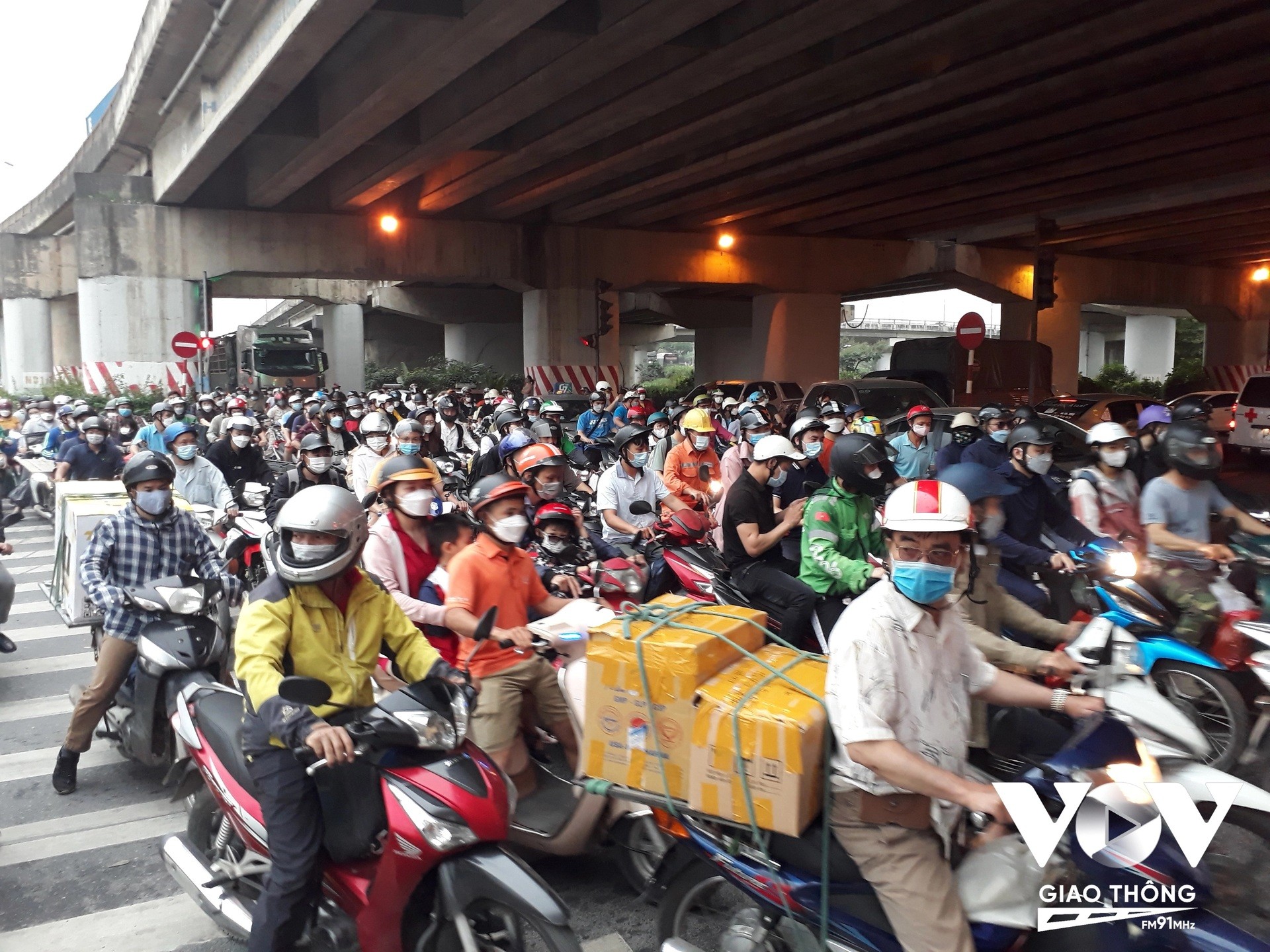Hanoi People’s Committee has announced that the Hanoi Department of Transport is actively implementing a project to zone and restrict motorbike operations, aiming towards a complete Hanoi motorbike ban in the inner city area by 2030. This is a significant step in the city’s urban economic development plan, striving to build a civilized and modern capital and reduce environmental pollution.
Hanoi Motorbike Ban Roadmap to 2030 Detailed
According to the latest approved decision, the project “Zoning to restrict motorbike operations in accordance with infrastructure and public passenger transport capacity, towards stopping motorbike operations in districts by 2030” is assigned to the Hanoi Department of Transport to lead the implementation. The 2023-2025 phase will focus on zoning and developing a detailed roadmap, in coordination with the City Police and People’s Committees of districts, towns, and townships.
 Hanoi Department of Transportation planning motorbike ban in inner city by 2030 to reduce traffic and pollution.
Hanoi Department of Transportation planning motorbike ban in inner city by 2030 to reduce traffic and pollution.
The motorbike ban is expected to be implemented in 12 inner districts, including: Ba Dinh, Bac Tu Liem, Cau Giay, Dong Da, Hai Ba Trung, Ha Dong, Hoan Kiem, Hoang Mai, Long Bien, Nam Tu Liem, Tay Ho, and Thanh Xuan. This is the central area with high traffic density and the most severe congestion and pollution.
Motorbike Ban Goal: Solving Pollution and Congestion
The Hanoi People’s Committee emphasized that one of the main motivations for implementing the motorbike ban is the increasingly alarming environmental pollution situation. Research indicates that traffic activities, especially from cars and motorbikes, account for up to 70% of air pollution causes in Hanoi. Reducing private vehicles, especially motorbikes, is considered an urgent solution to improve air quality and the living environment for city residents.
Furthermore, the motorbike ban is also part of a sustainable urban transport development strategy, aiming to prioritize the development of public passenger transport systems. The city has also tasked the Department of Transport with researching a project to collect fees for motor vehicles entering certain areas at risk of congestion and pollution, in order to limit the number of private vehicles in circulation and encourage people to switch to public transport and environmentally friendly vehicles.
Towards Modern Public Transport to Replace Motorbikes
To ensure the Hanoi motorbike ban proceeds smoothly and does not significantly affect people’s lives, the city is also focusing on investing in the development of public transport systems. Metro projects, BRT fast buses, and public bus routes are being accelerated, improving service quality and expanding the network. At the same time, the government also encourages the participation of private enterprises in the public transport sector, creating more high-quality travel options for residents.
The Hanoi Department of Transport‘s decisive implementation of solutions to restrict and move towards a motorbike ban demonstrates the city’s determination to solve pressing traffic and environmental problems. This is a bold step that requires the consensus and support of the people, as well as careful preparation of infrastructure and public transport services, to ensure a successful and sustainable urban transport transition process.
